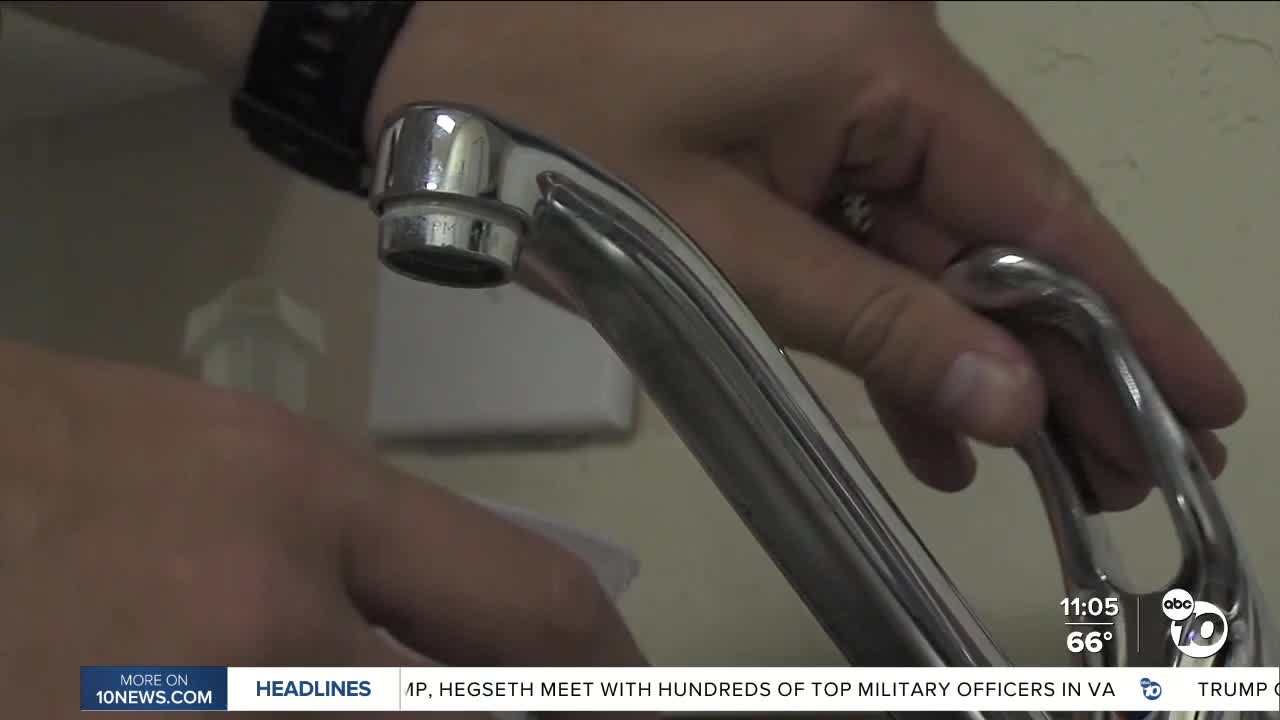SAN DIEGO (KGTV) — On a day when San Diego City Councilmembers were expected to vote on suggested water and sewer rate increases for residents, they instead delayed the decision after hearing pushback from the community and citing their own reservations with the proposal.
“The reality is, the rates for everything is too high," said Will Rodriguez-Kennedy, who is the San Diego County Democratic Party Chairman, but showed up to Tuesday's City Council meeting in an unofficial capacity as a concerned citizen living downtown.
The reality Rodriguez-Kennedy expressed is not unique to him.
“If this water rate goes into place, I just don’t know what I’m going to do," said Terri Altorelli, who's lived in San Diego for 37 years and was there as well Tuesday alongside several fellow members of the San Diego Workers Benefits Council.
The big item on the agenda was a proposal to raise water and sewer rates for residents.
According to a staff report from the Public Utilities Department, water rates would increase by about 63% over the next four years.
That means a household with a one-inch meter, now paying about $46 a month for water service, would shell out around $80 a month by January 2029.
Sewer rates would also increase by 31% in that span.
“I don’t know what the number is — this is very complex, as we saw in the discussion back and forth, but I think it should come down somewhat," Rodriguez-Kennedy said.
A review by the Office of the Independent Budget Analyst of the proposed increases said the rate hikes are inevitable "in the current environment of declining water sales and wastewater flows which generate revenue for the systems."
As ABC 10News reported ahead of the meeting, a separate statement from the city said, "the main driver of the water rate increase is higher costs to purchase water from the San Diego County Water Authority, which are passed on to the city's customers. Purchasing water from the SDCWA is the second largest individual expense for the entire city of San Diego."
Other reasons for the rate hike include increasing costs of maintenance, increasing energy rates, Pure Water Phase 1 operations and more.
"The city is dedicated to minimizing rate increases for its customers by focusing on long-term financial planning, making strategic infrastructure investments, securing grants and low-interest financing, and maximizing the use of local water resources," the statement read. "However, despite these efforts, periodic rate adjustments are necessary to address critical challenges."
The City of Oceanside is also looking at possible rate hikes of its own over similar struggles.
Its Water Utilities Department recommends a 6% average increase in City water rates in both 2026 and 2027, and a 4% average increase in City wastewater rates in both 2026 and 2027.
“This also ensures we have enough money in our budgets to maintain supply potable water and maintain our system in the robust fashion that it is in," said Fred Mayo, Oceanside Water Utilities Director.
Mayo went onto say, "We're looking at starting in January on council's approval replacing about 13,000 linear feet of piping of a wastewater pipe and another roughly 7,000 feet. So that's about 5 miles of new pipeline that we're going to be replacing in the downtown area, which is an upgrade, and replace aging infrastructure."
In San Diego, City Councilmembers heard concerns of the public and pushed back on the proposal themselves.
“I cannot, and will not, in good conscience, vote for another cost-of-living increase on San Diego families until we see the substantive and necessary changes that allow us to rebuild trust with the public and foster good faith communication between the Mayor, the council and that public," said Kent Lee, San Diego City Council President Pro Tem.
His statement was well-received by the residents in attendance.
Lee was not alone in his beliefs. Of the nine councilmembers, eight wanted to postpone the vote, and one — Vivian Moreno — rejected the proposal altogether.
It's ultimately been delayed until October 28th. When it returns to the agenda, it's unlikely the proposed tax will just evaporate, but the amount could cause less of a splash.
“People take for granted, that when you turn on the tap in your house, that the water is clean," Rodriguez-Kennedy said. "That is not something that happens everywhere. If you just go across the border, that is not the case. We do have to invest in this.”
Meantime, the City of Oceanside will hold its hearing Wednesday afternoon.
Follow ABC 10News Anchor Max Goldwasser on Instagram, Facebook and Twitter.




